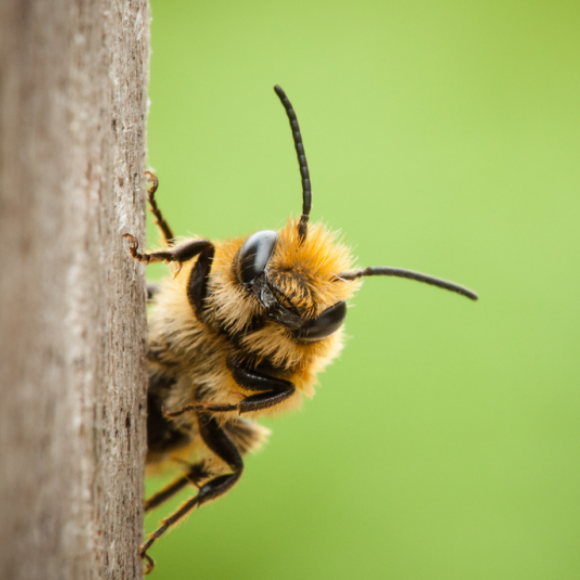Next Thursday (20th May) is World Bee Day. Much of our food depends on pollinators such as bees, so we take a look at what we can do at home to protect, preserve and encourage them.
Globally, three out of four crops that produce fruit or seeds for use as human food depend, at least in part, on bees and other pollinators such as butterflies, bats and birds. Yet all these pollinators are increasingly under threat from human activities.
Pollination is a fundamental process for the survival of our ecosystems. Nearly 90% of the world’s wild flowering plant species depend, entirely on it, along with more than 75% of the world’s food crops and 35% of global agricultural land.
Not only do pollinators contribute directly to food security, but they are key to conserving biodiversity. Yet bees are under threat, and if this trend continues, nutritious crops such as fruits, nuts and many vegetables will be increasingly substituted by staple crops like rice, corn and potatoes, eventually resulting in an imbalanced diet.
To raise awareness of the importance of pollinators, the threats they face and their contribution to sustainable development, the UN designated 20 May as World Bee Day.
The goal is to strengthen measures aimed at protecting bees and other pollinators, which would significantly contribute to solving problems related to the global food supply and eliminate hunger in developing countries.
We all depend on pollinators and it is, therefore, crucial to monitor their decline and halt the loss of biodiversity.
How can we as individuals do more? Apart from having our own hives (and that’s not for everyone), here are some ways:
– build a sanctuary for our friendly, stingless native bees;
– plant a diverse set of native plants, which flower at different times of the year;
– buy raw honey from local farmers;
– buy products from sustainable agricultural practices;
– avoid pesticides, fungicides or herbicides in our gardens;
– protect wild bee colonies when possible;
– sponsor a hive;
– make a bee water fountain by leaving a water bowl outside;
– help in sustaining forest ecosystems;
– raise awareness by sharing information within communities and networks – the decline of bees affects us all!


